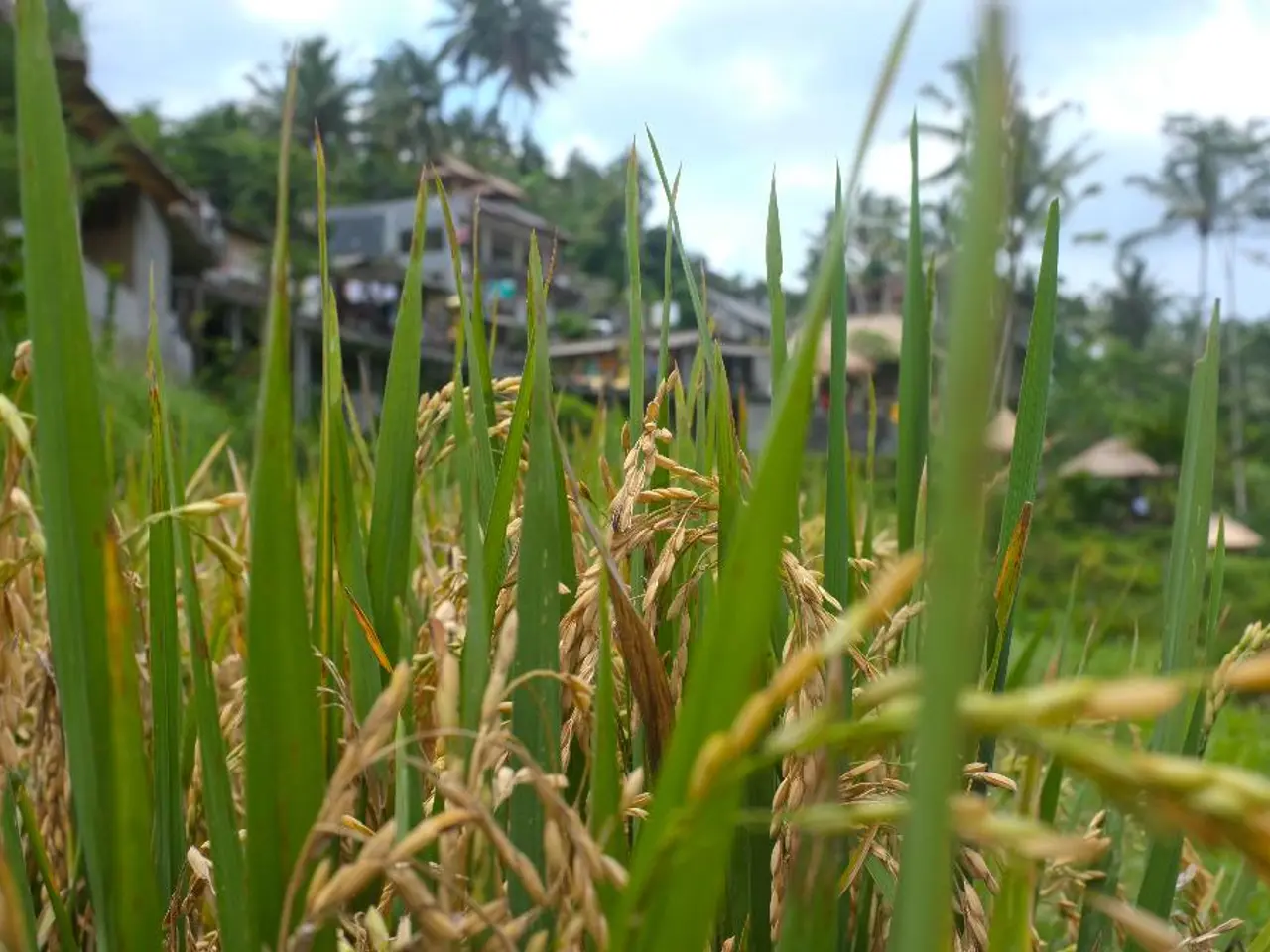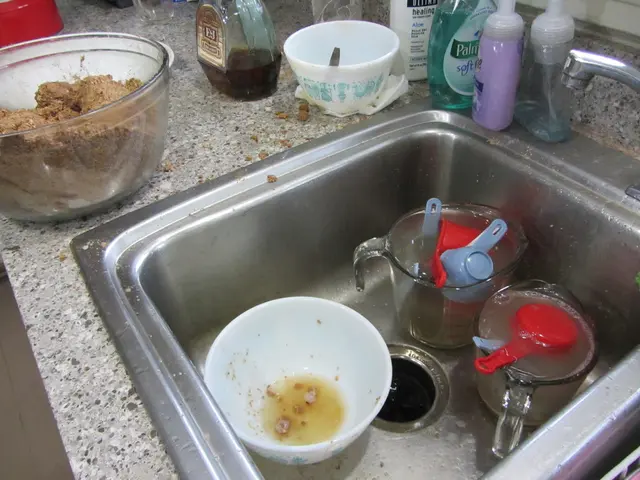Agricultural workers in Telangana are garnering carbon credits due to their rice cultivation practices
In a groundbreaking development for the agricultural sector, Sow & Reap Agro's Alternate Wetting and Drying (AWD) method for paddy cultivation is making waves. This sustainable practice significantly reduces water usage by up to 60% and cuts methane emissions by 6–7 tonnes per hectare, while also increasing yields through healthier root systems.
The project, named 'VARRI', has been certified by the Gold Standard, making Sow & Reap Agro the first company in India to receive carbon credits for paddy farming. This certification ensures transparency and credibility via blockchain-powered digital measurement, reporting, and verification (DMRV).
Farmers in Telangana have already reaped the benefits of this innovative method. Suraj Teja, Founder and CEO of Sow & Reap, stated that they have roped in 35,000 farmers in nine districts of Telangana, covering about one lakh acres. These farmers not only enjoy the environmental benefits but also an additional income of around ₹2,500 per hectare from the carbon credits generated.
Each hectare of paddy generates 12 tonnes of methane per year over two cropping cycles. By adopting the AWD method, farmers can significantly decrease methane emissions, contributing to a greener and more sustainable environment.
The success of the VARRI project has led to plans to expand the sustainable paddy cultivation programme to paddy-growing areas in Andhra Pradesh and the remaining parts of Telangana.
Meanwhile, Asvata-Equilibrium has tied up to restore 8,000 hectares and cut 30,000 tonnes of CO2e annually in Andhra Pradesh, demonstrating a growing commitment to sustainable agricultural practices.
The Oil Ministry also expects E20 fuel to conserve foreign exchange worth $4.9 billion in FY26, indicating a wider shift towards more sustainable and environmentally friendly practices across various sectors.
In conclusion, Sow & Reap’s AWD method exemplifies a climate-friendly innovation in paddy cultivation that simultaneously promotes water conservation, reduces greenhouse gas emissions, and supports farmer livelihoods through carbon markets. This initiative serves as a beacon of hope for a more sustainable future in Indian agriculture.
[1] Sow & Reap Agro's AWD method reduces water usage by up to 60% and cuts methane emissions by 6–7 tonnes per hectare. [2] Apart from environmental impact, farmers have improved yields, used less fertilizer, conserved water, and gained extra income through carbon credit sales. [3] The project, called VARRI, has been certified by the Gold Standard, ensuring transparency and credibility via blockchain-powered digital measurement, reporting, and verification (DMRV). [4] Sow & Reap’s proprietary DMRV software ensures the legitimacy and transparency of carbon credit issuance, scaling sustainable agriculture impact effectively.
Read also:
- Innovative Garments and Accessories Producing Energy: Exploring Unconventional Sources for Renewable Power
- Stratospheric Blockchain Network Debut by World Mobile and Protelindo
- Visionary Travel Company Soaring High with Green Aspirations
- Private sector now provided with Climate Risk Data and Analytics by ICE, enabling businesses to assess and manage potential threats from climate change








